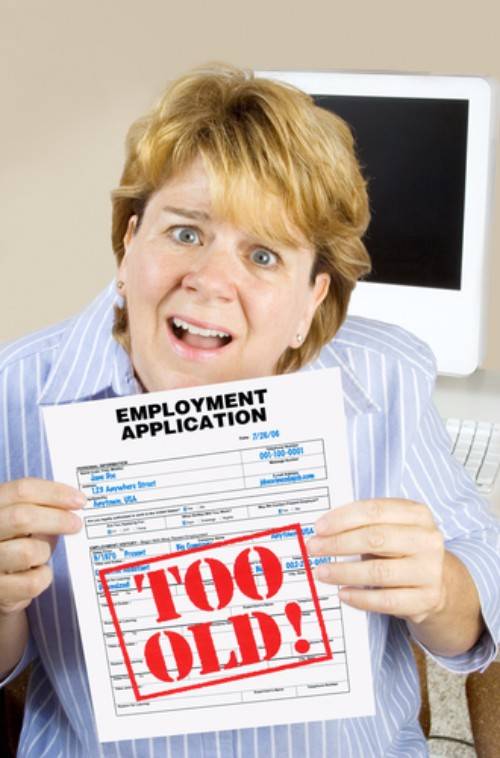In the dynamic landscape of California’s gig economy, workers face various challenges, one of the most prevalent being age discrimination. As the nature of employment evolves, understanding the nuances of age-related bias becomes crucial for those navigating the gig economy in South California. This Page aims to shed light on age discrimination, its implications, and the specific requirements in the state.
Defining Age Discrimination in the Gig Economy
Age discrimination involves treating an applicant or employee less favorably because of their age. In the context of the gig economy, where flexibility and autonomy often define the work structure, age-related bias can manifest in subtle yet impactful ways. It may include biased hiring practices, unequal pay, limited opportunities for advancement, or even termination based on age.
California’s strong anti-discrimination laws extend to the gig economy, ensuring that workers, regardless of their age, are protected from unfair treatment. The gig economy, characterized by short-term and freelance work, includes platforms like Uber, Lyft, and TaskRabbit, among others. As more individuals engage in gig work, understanding their rights in the face of age discrimination becomes paramount.
Age Discrimination Laws in California
California upholds stringent laws to combat age discrimination in the workplace, and these protections extend to gig workers. The California Fair Employment and Housing Act (FEHA) prohibits discrimination based on various factors, including age. Workers in the gig economy are entitled to the same protections as traditional employees, ensuring a level playing field for all.
Under FEHA, it is illegal for employers to make decisions about hiring, promotions, compensation, or termination based on an individual’s age, especially when it comes to workers aged 40 or older. Employers are also mandated to provide a work environment free from harassment related to age, fostering an inclusive atmosphere for all workers, regardless of their employment arrangement.
Requirements for Employers in South California’s Gig Economy
Employers in South California’s gig economy must adhere to specific requirements to ensure compliance with anti-discrimination laws. Firstly, it is crucial for them to implement fair hiring practices, avoiding any biases related to age during the recruitment process. Additionally, employers should provide equal opportunities for training, promotions, and other job-related benefits, irrespective of the worker’s age.
Wage discrimination based on age is strictly prohibited. Employers must ensure that gig workers are compensated fairly for their services, without any consideration of their age. Furthermore, termination decisions should be based on performance and job-related criteria rather than age.
Creating a workplace culture that values diversity and inclusion is not only a legal requirement but also contributes to a more productive and harmonious work environment. Employers should foster a culture that encourages collaboration among workers of different age groups, recognizing the unique perspectives and skills each individual brings to the table.
Challenges Faced by Older Gig Workers
While legal protections exist, older gig workers may still encounter challenges in the form of subtle age bias. The gig economy often values youthful energy and adaptability, potentially leaving older workers feeling marginalized. They might face stereotypes that assume they are less tech-savvy or less willing to embrace change.
Additionally, older gig workers may find it challenging to secure new opportunities or promotions, despite having extensive experience and skills. It is essential for employers to recognize the value that older workers bring to the gig economy and actively work to eliminate age-related stereotypes and biases.
Legal Recourse for Age Discrimination
Workers who believe they have faced age discrimination in California’s gig economy have legal avenues for recourse. They can file a complaint with the California Department of Fair Employment and Housing (DFEH) or pursue a civil lawsuit. The legal process may involve seeking compensatory and punitive damages, as well as injunctive relief to address the discriminatory practices.
It is crucial for workers to document instances of age discrimination, including dates, times, and any witnesses present. This documentation can be instrumental in building a strong case and demonstrating a pattern of discriminatory behavior. Seeking legal advice from an employment attorney experienced in California’s anti-discrimination laws is also advisable.
In navigating the gig economy in South California, understanding age discrimination is vital for workers of all ages. The state’s robust legal framework provides protections against age-related bias, ensuring a fair and inclusive environment for gig workers. Employers must actively work towards eliminating age discrimination in all aspects of employment, from hiring to termination.
As the gig economy continues to evolve, it is essential for workers to be aware of their rights and take action if they believe they have been subjected to age discrimination. By fostering a workplace culture that values diversity and inclusivity, employers contribute to a thriving gig economy that benefits workers of all ages.
If you believe you have been a victim of age discrimination in California’s gig economy, don’t hesitate to take action. Our experienced employment law attorneys at sickandfired.com lawyers are here to help. Schedule a free case review today and let us guide you through the legal process, ensuring your rights are protected in the ever-changing landscape of the gig economy.
